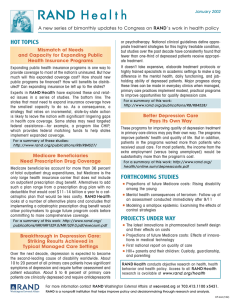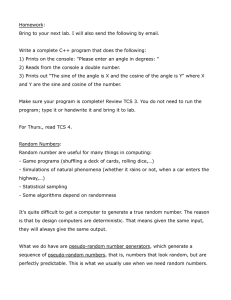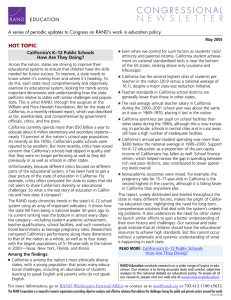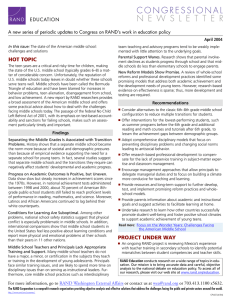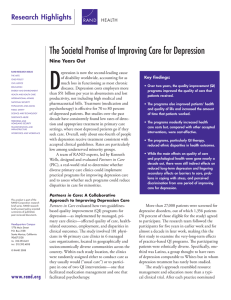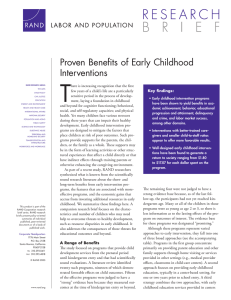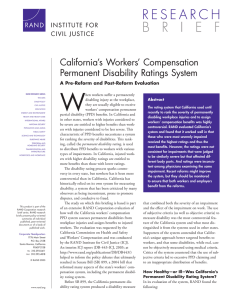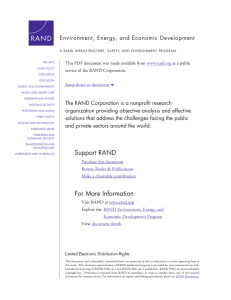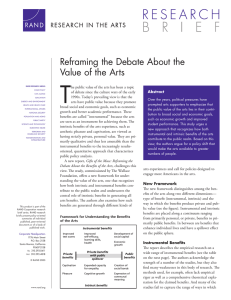HOT TOPICS The Future of the Individual Health
advertisement
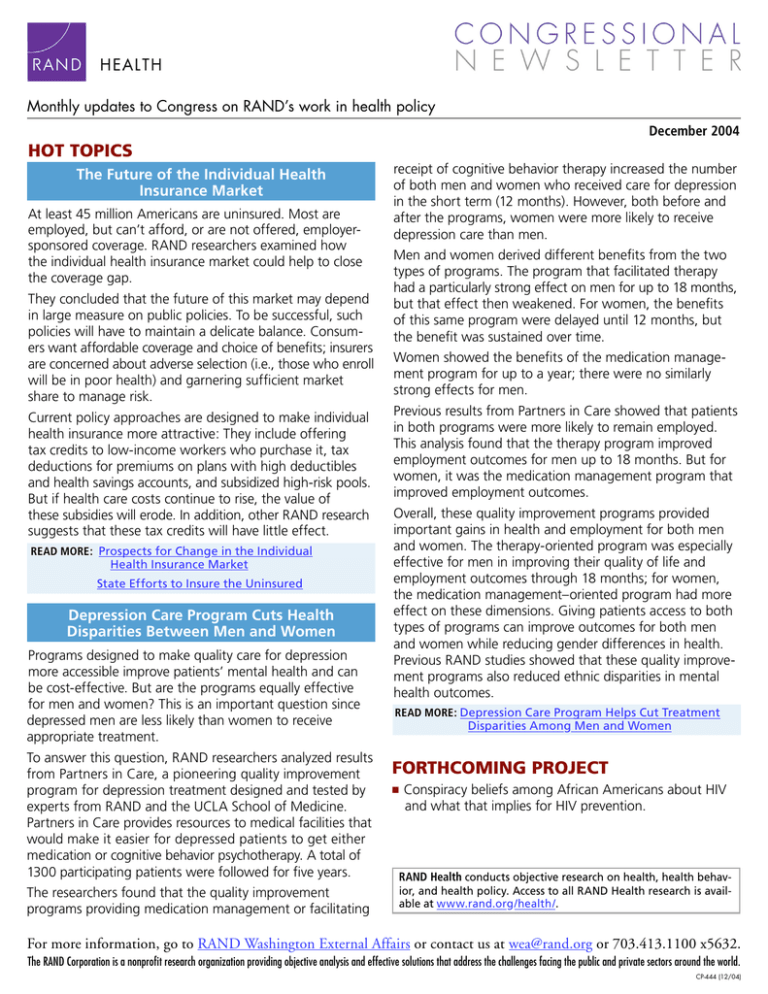
Monthly updates to Congress on RAND’s work in health policy December 2004 HOT TOPICS The Future of the Individual Health Insurance Market At least 45 million Americans are uninsured. Most are employed, but can’t afford, or are not offered, employersponsored coverage. RAND researchers examined how the individual health insurance market could help to close the coverage gap. They concluded that the future of this market may depend in large measure on public policies. To be successful, such policies will have to maintain a delicate balance. Consumers want affordable coverage and choice of benefits; insurers are concerned about adverse selection (i.e., those who enroll will be in poor health) and garnering sufficient market share to manage risk. Current policy approaches are designed to make individual health insurance more attractive: They include offering tax credits to low-income workers who purchase it, tax deductions for premiums on plans with high deductibles and health savings accounts, and subsidized high-risk pools. But if health care costs continue to rise, the value of these subsidies will erode. In addition, other RAND research suggests that these tax credits will have little effect. READ MORE: Prospects for Change in the Individual Health Insurance Market State Efforts to Insure the Uninsured Depression Care Program Cuts Health Disparities Between Men and Women Programs designed to make quality care for depression more accessible improve patients’ mental health and can be cost-effective. But are the programs equally effective for men and women? This is an important question since depressed men are less likely than women to receive appropriate treatment. To answer this question, RAND researchers analyzed results from Partners in Care, a pioneering quality improvement program for depression treatment designed and tested by experts from RAND and the UCLA School of Medicine. Partners in Care provides resources to medical facilities that would make it easier for depressed patients to get either medication or cognitive behavior psychotherapy. A total of 1300 participating patients were followed for five years. The researchers found that the quality improvement programs providing medication management or facilitating receipt of cognitive behavior therapy increased the number of both men and women who received care for depression in the short term (12 months). However, both before and after the programs, women were more likely to receive depression care than men. Men and women derived different benefits from the two types of programs. The program that facilitated therapy had a particularly strong effect on men for up to 18 months, but that effect then weakened. For women, the benefits of this same program were delayed until 12 months, but the benefit was sustained over time. Women showed the benefits of the medication management program for up to a year; there were no similarly strong effects for men. Previous results from Partners in Care showed that patients in both programs were more likely to remain employed. This analysis found that the therapy program improved employment outcomes for men up to 18 months. But for women, it was the medication management program that improved employment outcomes. Overall, these quality improvement programs provided important gains in health and employment for both men and women. The therapy-oriented program was especially effective for men in improving their quality of life and employment outcomes through 18 months; for women, the medication management–oriented program had more effect on these dimensions. Giving patients access to both types of programs can improve outcomes for both men and women while reducing gender differences in health. Previous RAND studies showed that these quality improvement programs also reduced ethnic disparities in mental health outcomes. READ MORE: Depression Care Program Helps Cut Treatment Disparities Among Men and Women FORTHCOMING PROJECT ■ Conspiracy beliefs among African Americans about HIV and what that implies for HIV prevention. RAND Health conducts objective research on health, health behavior, and health policy. Access to all RAND Health research is available at www.rand.org/health/. For more information, go to RAND Washington External Affairs or contact us at wea@rand.org or 703.413.1100 x5632. The RAND Corporation is a nonprofit research organization providing objective analysis and effective solutions that address the challenges facing the public and private sectors around the world. CP-444 (12/04)


